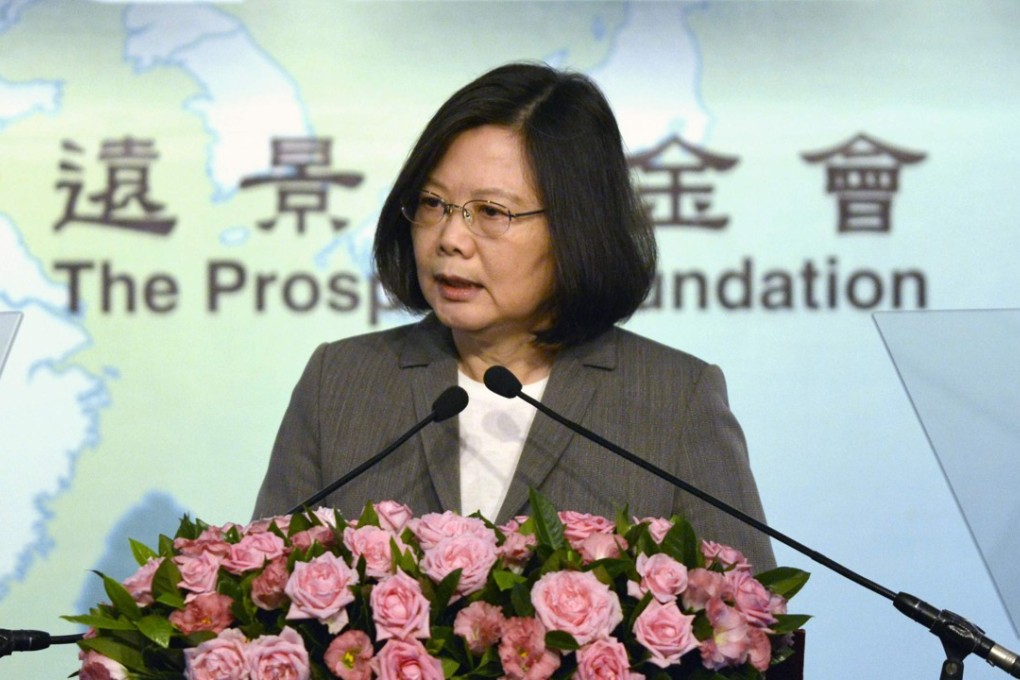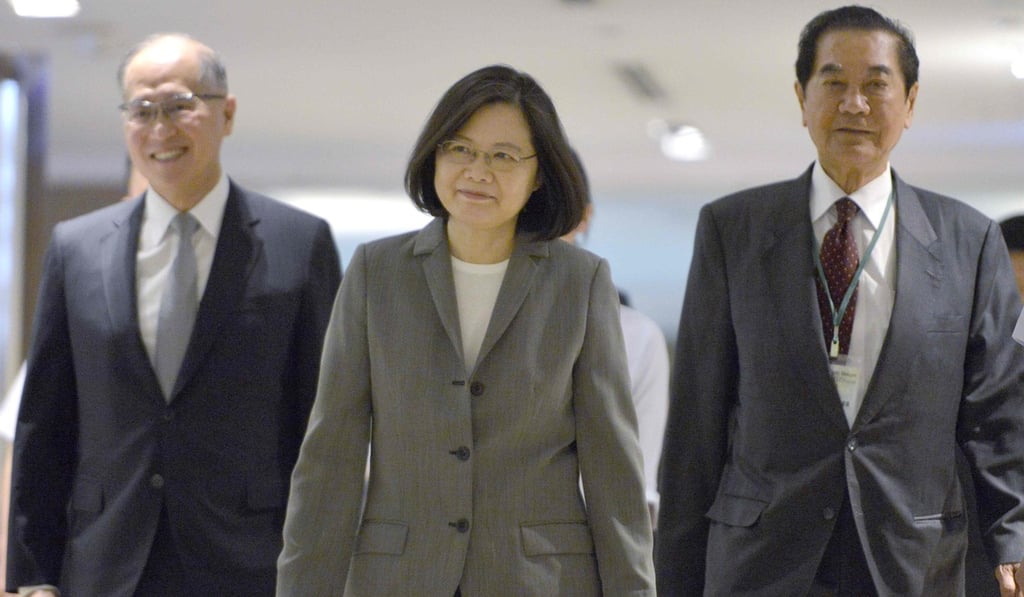Taiwan’s President Tsai urges mainland China to work with her to break deadlock
Island’s leader urges Beijing to resume contacts in hope of improving relations

Taiwan’s President Tsai Ing-wen has called on mainland China to work with her government to establish “a new model of cross-strait interactions”.
“We hope that both sides of the Taiwan Strait can work on a new model for cross-strait interactions that benefit the stability and prosperity of both sides and the region as a whole,” Tsai said in an address at a forum on regional security issues held in Taipei.
Tsai said her administration, which has been given the cold-shoulder by Beijing since she came to power last year, “remains fully committed to maintaining the status quo” in relations with the mainland, but “this cannot be achieved by just one side alone.”

She said goodwill and cooperation is required from both sides, while keeping in mind their shared interests in prosperity and regional development.